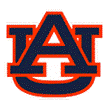
Auburn Tigers
Southeastern Conference
Is there anything to be made of a team that beats everyone they are supposed to beat and loses to everyone “good?” That is what the Auburn Tigers did in the 2011 season, finishing with seven victories, none more notable than a simple three point win over South Carolina. That also doubled as their lone road victory of the season. Bowl eligibility does not mean a team is elite; it simply means a team won a fair amount of their games and that is exactly what Auburn did: nothing more, nothing less.
2011 Record: 7-5, 4-4
Last Bowl Appearance: 2010 BCS National Championship vs. Oregon (W 22-19)
Big Wins: 10/1 at South Carolina (16-13), 10/15 Florida (17-6)
Bad Losses: 9/17 at Clemson (24-38), 11/12 at Georgia (7-45)
Coach: Gene Chizik (29-10 at Auburn, 34-31 overall)
Bowl Record: 2-0 at Auburn, 2-0 overall
Offensive Coordinator: Gus Malzahn
Defensive Coordinator: Ted Roof
Strengths:
After the departure of star Cam Newton from the National Championship team, Auburn was forced to rely on their running backs to carry the load on offense. Michael Dyer and Onterio McCalebb tried their best to do so. Finishing one and two on the team in rushing and total offense with McCalebb impressive in receptions per game and Dyer controlling the scoring load, the Tigers were respectable on offense. A team that beats bad teams at home and loses to everyone good on the road probably doesn’t have many strengths to begin with. Auburn though did rank well in certain areas of football often overlooked: some special teams categories. Although their punter, Steven Clark, was not fantastic, their punting unit was. Auburn ranks in the top 20 in the nation in net punting (where they averaged close to 40 yards per boot), meaning that even though Clark’s punts weren’t tremendously deep, returners usually did very little with them. In addition, Tre Mason had a very nice season as kick returner, running one back early in the year and, although a number of other players got chances throughout the season, finished with an average that placed him first in the conference overall.
Weaknesses:
Auburn’s weakness was really in their mediocrity. They were not especially good in anything this season. Other than their running backs, they did not have an area of their team that was especially successful. Plus their defense was bad. They gave up more than 30 points each of the first three games of the season. Where some mediocre teams can keep themselves in tough games with a good defensive showing, Auburn routinely got smacked by highly ranked opponents, giving up oodles of points in the process. In a defense-heavy conference, Auburn ranked at or near the bottom in most categories even though they finished with one of the better overall win-loss records. The Tigers finished near the bottom of the conference in total defense, scoring defense, rushing defense, passing defense and pass efficiency defense; not a strong showing for a roster that had some of the best defensive talents in the nation just one short season ago. The Tigers also really, really missed Cam Newton. Their quarterback play in 2011 was spotty, to be kind. Barrett Trotter started the year, played a number of weeks and then got benched in favor of Clint Moseley. Neither man took hold of the position however, as Moseley has been nothing better than adequate since the switch.
Statistical Leaders:
Rushing: Michael Dyer, RB, 1,242 yards
Passing: Barrett Trotter, QB, 1,009 yards
Receiving: Emory Blake, WR, 505 yards
Tackles: Daren Bates, LB, 96
Sacks: Corey Lemonier, DE, 9.5
Interceptions: Neiko Thorpe, S, 3
2011 Team Stats:
Rushing Offense: 174.75 (40th in nation, 5th in conference)
Passing Offense: 153.42 (106, 10)
Total Offense: 328.17 (104, 10)
Scoring Offense: 24.25 (82, 9)
Rushing Defense: 194.75 (99, 11)
Pass Defense: 211.00 (48, 12)
Total Defense: 405.75 (78, 11)
Scoring Defense: 29.33 (79, 11)
Turnover Margin: .00 (59, 8)
Sacks: 1.75 (71, 8)
Sacks Allowed: 2.50 (91, 10)
